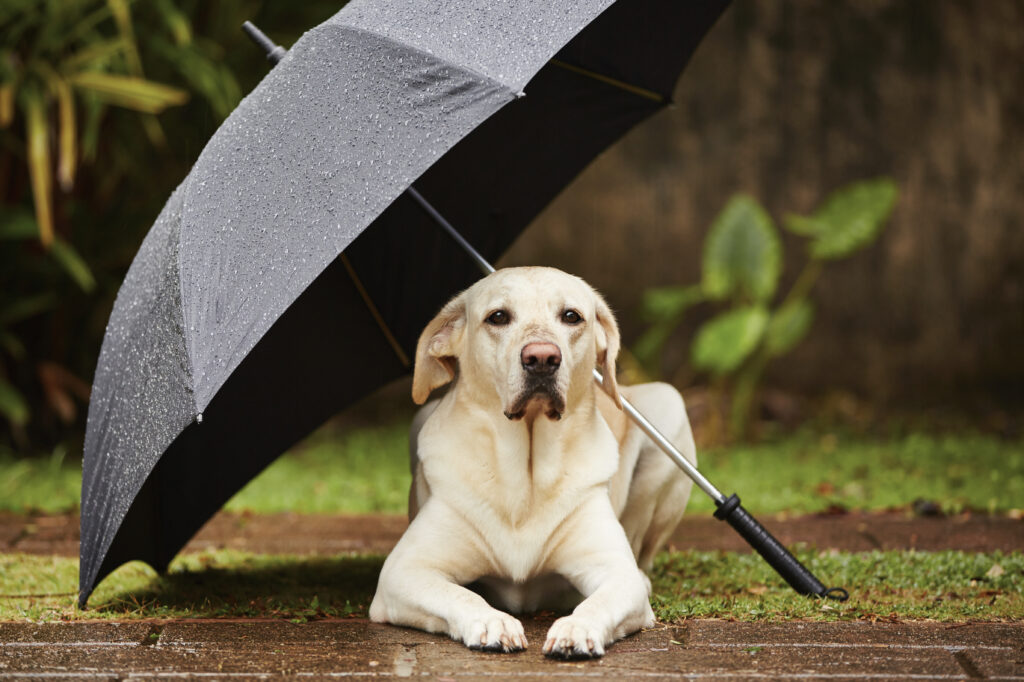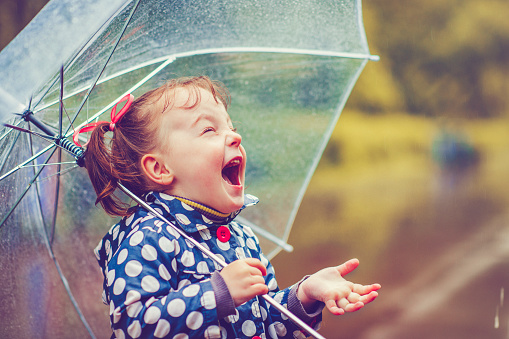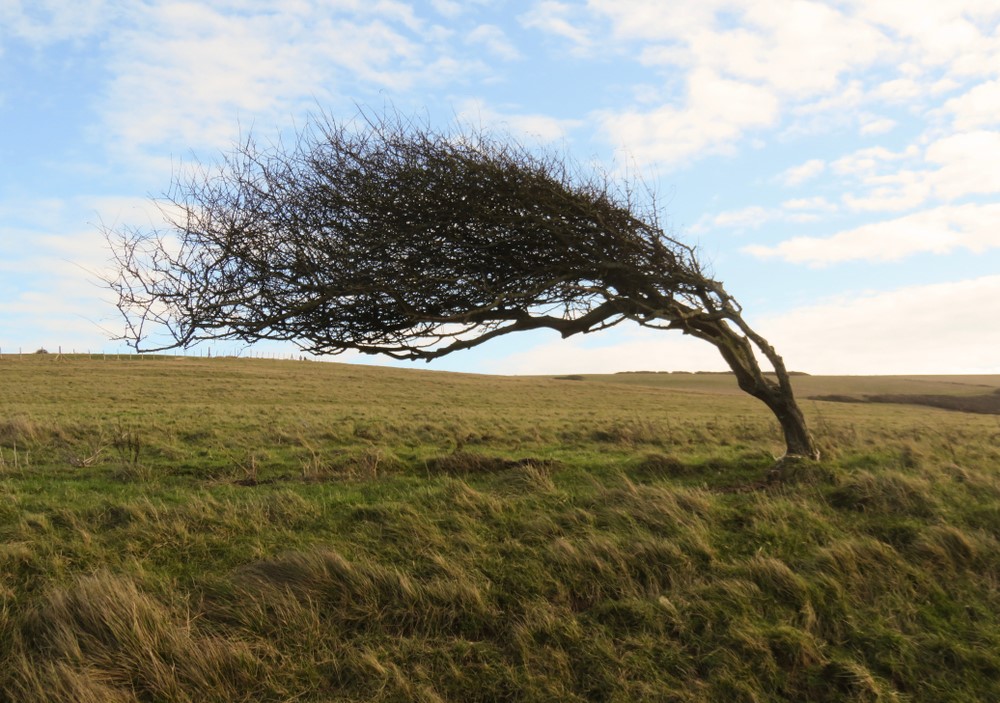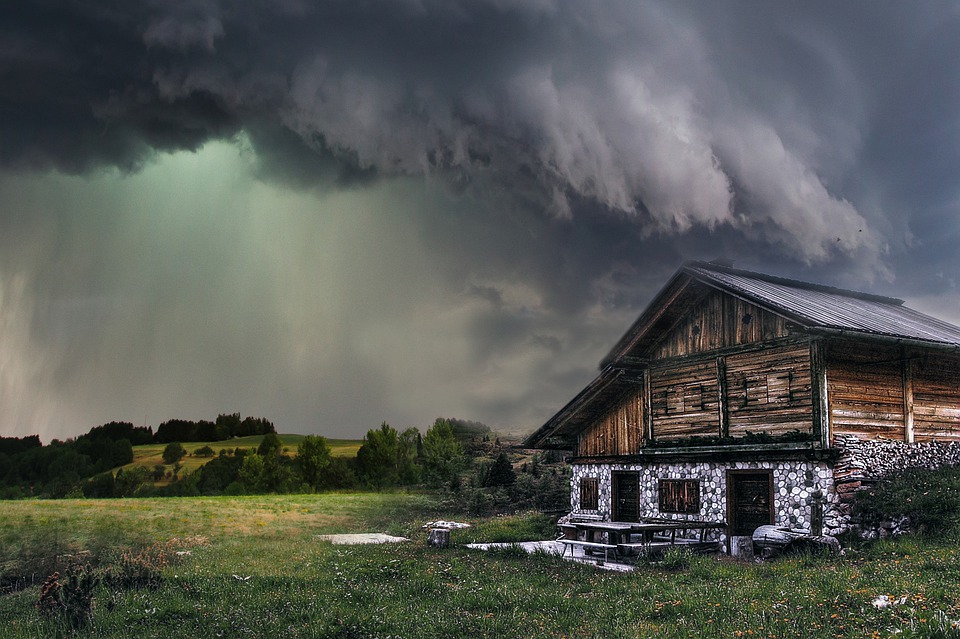
40 English Weather Idioms That Make Speaking English a Breeze
In English, talking about the weather is a common small talk topic.
But you might hear someone say that they’re “feeling under the weather” or they want to “take a rain check.”
These are idioms that aren’t actually about the weather at all, so don’t take them literally!
In this post, we’re going to learn how to use English weather idioms to talk up a storm (talk a lot) about different topics.
Contents
- General Weather Idioms
- Rain Idioms
- Rainbow Idioms
- Wind Idioms
- Storm Idioms
- Ice and Snow Idioms
- Sun Idioms
- Why Learn English Weather Idioms?
- How to Practice English Weather Idioms
- And One More Thing...
Download: This blog post is available as a convenient and portable PDF that you can take anywhere. Click here to get a copy. (Download)
General Weather Idioms
1. Under the weather
If you’re feeling “under the weather,” it means that you don’t feel well.
The term originally came from the phrase “under the weather bow.” (In this phrase, “bow” rhymes with “cow.”)
The “weather bow” was the part of a ship that was getting hit with bad weather, such as heavy rain or storms. Sailors would go below deck so they wouldn’t get seasick. In other words, they would be “under the weather bow.”
Over time, even people on dry land started using “under the weather” to mean feeling ill.
Check out the phrase in more detail in this video:
2. Fair-weather friend
“Fair” weather is pleasant and sunny. It’s not too hot or too cold. It’s perfect for having fun, especially outdoors.
A “fair-weather friend” is someone who’s only around when things are going well—when you’re having fun, in a good mood or have money to spend.
The minute something bad happens, a fair-weather friend will suddenly have other plans.
3. Weather the storm
This one can be a little confusing. When we say “weather” in English, we’re usually talking about how hot or cold it is outside, or whether it’s rainy, snowy, windy or sunny.
“Weather” can also be a verb (action word), though.
In the idiom “weather the storm,” the word “weather” means “to get through” or “to survive.” “The storm” in this phrase could be any difficult time or challenge.
Put it together, and this idiom means to survive a difficult challenge.
So, you might say:
“Fred is going through a hard time right now, but he’ll weather the storm.”
This means that Fred will overcome whatever problems he has.
4. Keep a weather eye on someone/something
A “weather eye” doesn’t mean that rain, snow or sunshine is in someone’s eye!
A “weather eye” is a close watch. Because the weather changes so much, we have to watch it carefully. We don’t want to be surprised by a sudden storm.
If you “keep a weather eye” on someone or something, it means that you’re worried about that person or thing. You’re concerned that a sudden change might cause a problem.
Here’s an example:
“Gary is keeping a weather eye on the stock market because he’s worried about a crash.”
Rain Idioms
5. It’s raining cats and dogs
This means it’s raining very heavily.
This idiom may come from strange happenings around the world. For hundreds of years, people have talked about “rains of animals.” They’ve mentioned animals such as fish, frogs, birds and snakes falling from the sky like rain.
You can see this idiom explained in the video below:
6. When it rains, it pours
In this idiom, “rain” refers to something bad that makes life more difficult.
“It pours” tells you that many bad things are happening all at once.
In British English, a similar idiom would be: “It never rains, but it pours.”
You can use this weather idiom to talk about a situation where everything seemed to go wrong:
“First, my alarm clock didn’t go off, so I overslept. Then, my power went out, so I couldn’t make coffee. When I finally got to the empty office, I realized that it was Saturday. When it rains, it pours!”
7. Right as rain
Rain isn’t always a sign of something bad. In this idiom, it means that everything is going well or that someone is feeling better.
For instance, you could say:
“Barney was feeling under the weather yesterday, but he got a good sleep last night. Now he’s right as rain!”
This would mean that Barney is no longer feeling ill after resting.
8. Take a rain check
A “rain check” is not some strange, soggy form of money. Here, a “check” means a “ticket”—similar to a “hat check” or a “coat check” that you’d use to claim your hat or coat after it was hung up for you at a restaurant.
A “rain check” would let you claim another chance to do something at a later time.
If you tell someone, “I’ll take a rain check,” it means that you’re willing to wait until an event, service or product is ready for you to enjoy. It’s another way of saying, “I understand the delay. We’ll do this later.”
9. Saving for a rainy day
Rain is back to being unpleasant in this idiom. A rainy day is when things are going wrong.
“Here’s That Rainy Day” is a well-known English song, originally from the 1950s. In the song, the “rainy day” is a love affair that ended badly.
Saving for a rainy day means you’re trying to prepare for unexpected trouble.
“Peggy isn’t spending all of her salary. She’s saving for a rainy day.”
This means that Peggy is putting money in the bank, just in case some big expense comes up.
A “rainy day” can also be when you have some extra time because things didn’t go according to plan.
So, you might say:
“I’m sorry we had to take a rain check on that concert, but we can watch this movie instead. I’ve been saving it for a rainy day.”
10. Come rain or shine
This idiom uses two opposite weather conditions—rain and sunshine—to mean “no matter what happens.”
“Come Rain or Come Shine” is a classic, popular song that uses this idiom. There are other opposites in the song, like “happy together, unhappy together” and “we’re in or we’re out of the money.” Just like “come rain or shine,” these opposites mean “no matter what.”
Rainbow Idioms
11. A pot of gold at the end of the rainbow
The “pot of gold at the end of the rainbow” refers to something wonderful that you can never have.
It comes from an Irish legend about the leprechaun, the fairy shoemaker. In the story, the leprechaun hides his gold “at the end of the rainbow,” where the rainbow would touch down to the earth.
Of course, you can’t ever get to the end of a rainbow. So, that terrific “pot of gold” is something that’s only in your imagination.
12. Chasing rainbows
Even though rainbows are real, they seem to disappear as you get close to them.
If you know someone who’s trying to reach an impossible goal, you can say that they’re “chasing rainbows.”
13. Life isn’t all rainbows and unicorns (or sunshine)
Rainbows almost seem too beautiful to be real.
Unicorns are a symbol of something fantastic or magical, and most people don’t believe in them. (For some extra English practice, try reading this funny short story about a unicorn.)
And sunshine is simply beautiful. It makes people think of pure, trouble-free happiness.
When you think that someone is being too idealistic, too much of a dreamer, you can remind them that, “life isn’t all rainbows and unicorns.” In other words, there are bad things that happen.
Wind Idioms
14. It’s a breeze
A “breeze” is air that blows lightly and gently. It doesn’t move with force; it moves easily.
You might ask, “Is it hard to learn English weather idioms?”
I would say, “No! It’s a breeze.” In other words, it’s easy!
15. Something in the wind
If your coworker says, “There’s something in the wind about us getting new computers,” don’t look for flying laptops.
“Something in the wind” just means that there are rumors about what might happen.
16. Get wind of (something)
To “get wind of (something)” is similar to “something in the wind.”
While “something in the wind” means that there are rumors or talk about something that might happen, to “get wind of (something)” means to hear details about something secret.
You might also hear people say “caught wind of.” So, someone might tell you:
“I caught wind of a change in the head office. Rosy told me last week that Gene was going to get fired.”
17. Run like the wind
The wind can blow very fast. When someone says to “run like the wind,” it’s time to move quickly.
18. Scattered to the four winds
Each of the “four winds” represents a direction on a map: north, south, east and west.
When something gets “scattered to the four winds,” it means that it gets broken apart. Then, each piece of it is sent so far away from all of the other pieces that it could never be put back together again.
This idiom is often used to talk about a group of people or things that used to belong together.
19. Throw caution to the wind
When you make a decision to not worry about what might happen, when you don’t care what might result from your actions, you’re “throwing caution to the wind.”
Because the wind blows everywhere, changing direction and speed, caution that’s been “thrown to the wind” is basically gone.
People often say this when they’ve resolved to do something that might be dangerous or foolish.
Storm Idioms
20. Calm before the storm
Everything was going well. Then, suddenly, something awful happened.
When you look back at that untroubled time before bad things happened, you can describe it as the “calm before the storm.”
21. Any port in a storm
Storms are often dangerous. Like many weather idioms, such as “under the weather,” this one comes from nautical (seafaring) tradition.
A ship caught in a big, heavy storm would look for a safe port or harbor anywhere it could be found.
The expression means that when trouble or danger (“a storm”) comes around, we’re not going to be discriminating (picky) about where we find safety.
22. Tempest in a teapot
A “tempest” is a type of storm with violent winds. Hail (balls of ice), rain or snow often join the wild winds of a tempest.
But if a tempest is small enough to fit into a teapot, then it’s not a storm to fear.
If you declare that an event is a “tempest in a teapot,” you’re saying that it’s small and harmless, and nothing to worry about. You’re also saying that other people are worrying about the event far too much.
In British English, “storm in a teacup” can be used to mean the same thing.
23. It’s a perfect storm
When a bunch of unlikely things happen all at once and the result is something dreadful, it’s called a “perfect storm.”
In this case, the “storm” means all of the very different elements (parts) that worked together to make something happen.
Even though it’s called “perfect,” a perfect storm is not something you’d welcome.
24. Storm off/out
When you get angry and want to leave in a hurry, you can “storm off” to another place or simply “storm out” of the room.
In this idiom, “storm” is used to describe sudden, high-energy, violent motion.
25. Cooking up a storm
Making a ton of food for your dinner party this weekend? You could tell your friends that you’re “cooking up a storm.”
But that’s not the only way to use this English weather idiom.
You can also use it to talk about the actual weather. For example:
“With that wind howling and the sky getting dark, I think it’s really cooking up a storm out there.”
A lot of times, though, English speakers just use it to mean creating a lot of something—whether it’s food, anger, fuss or excitement.
You could say:
“The drummer was cooking up a storm on those bongos.”
This means that she was playing with a lot of style and energy.
You could also say:
“John’s nasty remarks started cooking up a storm of anger inside of Ted.”
This means that John’s words were causing Ted to get angrier and angrier.
Ice and Snow Idioms
26. Break the ice
When you first meet new people, it can be very awkward to have conversations. The “ice” is the uncomfortable feeling of being around someone you don’t know well.
When you “break the ice” with someone, talking to each other becomes easier.
Again, this idiom comes from the world of great sailing ships. In colder parts of the ocean, ice sometimes forms on the water. An icebreaker is a type of ship that breaks the ice so other ships can sail through.
Today, most English speakers use the word “icebreaker” to mean an activity that helps people relate to each other.
“To break the ice” means to say or do something that gets people to open up and talk.
Check out this expression in the following video:
27. On thin ice
No one wants to be “on thin ice.” It’s very dangerous because thin ice could break at any moment and you could fall into freezing waters.
If someone tells you that you’re “on thin ice,” it means that you’ve done or said something to anger them or put yourself in danger.
Take it as a warning.
28. As cold as ice
This one is pretty obvious. Something or someone “as cold as ice” is not warm or welcoming.
You can see this idiom being used in this popular song by Foreigner:
If you say that someone is as “cold as ice,” it can mean that they’re insensitive, unfeeling or heartless.
29. Keep (someone/something) on ice
You might put food in the freezer so it’ll keep for a long time. In the same way, you can “keep something on ice” so you don’t have to deal with it for a while.
If you keep someone on ice, it means that you’re making that person wait for something. You’re putting them off (waiting to deal with them).
30. Pure as the driven snow
Shakespeare first used the phrase “pure as the snow” in his play “Hamlet” (Act III, Scene 1). Hamlet was talking about Ophelia’s innocence.
Other writers added the word “driven” later on. It might’ve been added to mean snow that’s stayed pure and clean because it blew off into drifts and was never walked on. (Of course, since we drive our cars on snow now, this term is a little confusing!)
Just remember that “pure as the driven snow” means that someone is completely innocent and wholesome.
31. Snow on the roof
This one is a simple metaphor: A person with “snow on the roof” has white hair.
The “roof,” of course, is their head.
32. Snowball into (something)
Have you ever made a snowman?
You start out with a little clump of snow. You roll it into a ball. You keep rolling your ball of snow on the ground and watch it get bigger and bigger.
If something in your life “snowballs,” it means that it keeps growing larger. This happens quickly, gaining momentum (energy that keeps increasing).
“Snowballing” can be good or bad.
Here’s a positive example:
“Her first few sales of the new product snowballed into a permanent sales job with the company.”
And a negative example:
“One late night snowballed into many more late nights, and soon he struggled to get out of bed.”
33. Snowed under
Picture yourself walking in a big field of snow right after a blizzard (heavy snowstorm). If the snow is deep enough, you might sink down into it until it almost covers you. Since snow can be wet and heavy, it can be very hard to get yourself out of it.
Now, imagine that all of that snow is work you have to do.
This is what it means to be “snowed under.” You’re burdened with many things to do. Like snow, these tasks can pile up quickly.
34. Snow job
Snow can come down quickly and cover everything. It covers things that are dirty, making them look pure and clean.
A “snow job” is when someone puts a lot of effort into covering up the truth.
If you think someone’s lying to you, you can also ask, “Are you snowing me here?” This is very casual speech. You probably wouldn’t use it if you’re trying to be polite.
Sun Idioms
35. Make hay while the sun shines
Farmers often get up early to finish their farm chores outside while there’s still daylight.
If you’re trying to “make hay while the sun shines,” it means that you need to get your work done while you have everything you need to do it.
36. Moment in the sun
Have you ever seen someone step outside on a sunny day, and the sunlight hits them? The sun’s rays can make someone look like they’re glowing.
If you’re having your “moment in the sun,” it means that you’ve done something amazing and you’re being noticed for it.
37. Place in the sun
Ah, the feeling of the warm sun on a beautiful day!
A “place in the sun” is a comfortable, pleasant situation in your life.
It’s a time when everything is going well and you’re truly enjoying your life.
38. Nothing new under the sun
This idiom comes directly from Ecclesiastes, a book shared by the Hebrew and Christian scripture (holy writings).
That which has been is that which will be,
And that which has been done is that which will be done.
So, there is nothing new under the sun.
-Ecclesiastes 1:9
Each of us goes through life learning new things and discovering new ideas for ourselves. Yet, many people have come before us, discovering ideas and learning.
Even though the world changes a lot, there’s rarely—if ever—a completely new idea.
39. Everything under the sun
Since the sun shines all over the world, “under the sun” is talking about everything on planet Earth.
If you’ve tried “everything under the sun,” it means that you’ve tried every possible way to do something. You haven’t missed anything.
If someone owns “everything under the sun,” it means that they have a lot of possessions—probably, way too many.
40. To think the sun rises and sets (on someone)
This idiom means that you think someone is more important and special than anyone else in the world.
You admire the person so much that it’s as if the sun revolves around (goes around) them.
Why Learn English Weather Idioms?
They’re common in conversations.
Learning English weather idioms will improve your understanding of English.
They’re used often, especially in conversations. Most native English speakers will use a few of them several times a week, just out of habit.
They allow you to express difficult ideas.
These weather idioms are useful in many contexts. They’re metaphorical.
This means that they use something you can see, hear or feel—like snow, thunder or wind—to talk about ideas that are less tangible (able to be touched or noticed with your physical senses).
They improve your cultural understanding.
How is happiness like sunshine? How is a hard-hearted person like ice? Why does rain mean trouble?
People shape language, but language also shapes people. When you learn English weather idioms, you get more insight into the “personality” of the English language. That means that you can better understand how English speakers think about different ideas.
They make your speech more interesting.
Adding English weather idioms to your conversations will help you speak more colorfully (interestingly). These expressions will give nuance (small differences of meaning) to your speech, letting you express yourself in more interesting ways.
How to Practice English Weather Idioms
Sure, English weather idioms can be useful. But there are so many! What’s the best way to practice them?
Read them in stories.
You’ll see weather idioms in comics, children’s books and novels. “The Peculiar Stories Behind Raining Cats and Dogs and Other Idioms” is a children’s book that explores many English idioms, including the weather idiom in its title.
Listen to them in videos.
Weather idioms are often used by characters in television shows and movies. You’ll find them in conversations in films. They’re even used in the news sometimes.
Check out interactive videos like these ones:
Find many more videos for learning new weather words (and other vocabulary words) on the FluentU program.
FluentU takes authentic videos—like music videos, movie trailers, news and inspiring talks—and turns them into personalized language learning lessons.
You can try FluentU for free for 2 weeks. Check out the website or download the iOS app or Android app.
P.S. Click here to take advantage of our current sale! (Expires at the end of this month.)

Keep a journal.
Write down weather idioms that you learn in a helpful notebook or journal. You can even use a note app on your phone.
When you have a few moments, recite your weather idioms (say them aloud).
For more practice, try writing sentences that use the idioms.
Add them to conversations.
Practice using weather idioms when you talk to English-speaking friends.
Listen carefully for when your friends use these sayings. Ask them about ones you’ve never heard or don’t understand yet.
Now that we’ve talked about every English weather idiom under the sun, maybe you can use some of them to break the ice in your next English conversation. It’ll be a breeze!
And One More Thing...
If you like learning English through movies and online media, you should also check out FluentU. FluentU lets you learn English from popular talk shows, catchy music videos and funny commercials, as you can see here:
The FluentU app and website makes it really easy to watch English videos. There are captions that are interactive. That means you can tap on any word to see an image, definition, and useful examples.
For example, when you tap on the word "searching," you see this:
Learn all the vocabulary in any video with quizzes. Swipe left or right to see more examples for the word you’re learning.

FluentU helps you learn fast with useful questions and multiple examples. Learn more.
The best part? FluentU remembers the vocabulary that you’re learning. It gives you extra practice with difficult words—and reminds you when it’s time to review what you’ve learned. You have a truly personalized experience.
Start using the FluentU website on your computer or tablet or, better yet, download the FluentU app from the iTunes or Google Play store. Click here to take advantage of our current sale! (Expires at the end of this month.)


















